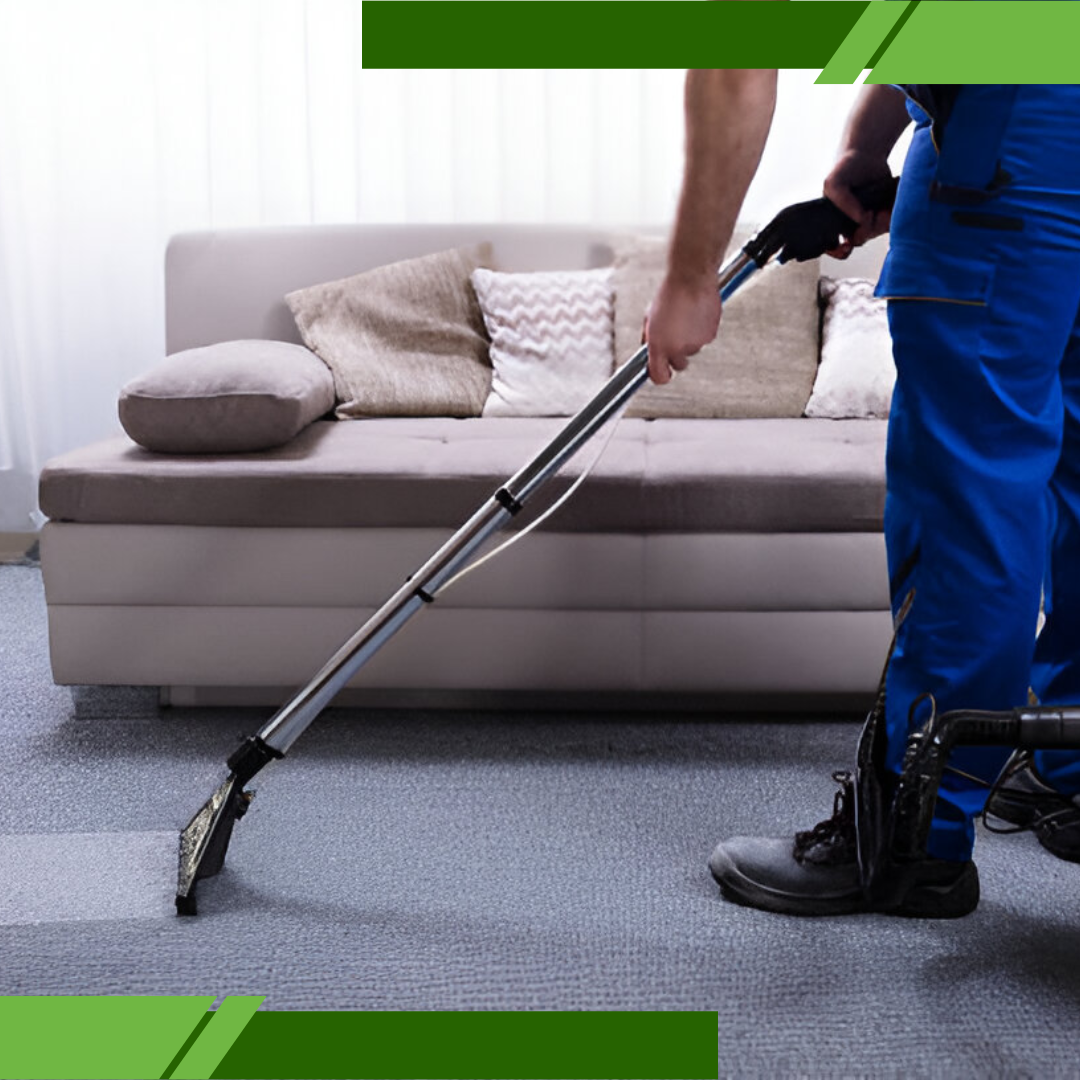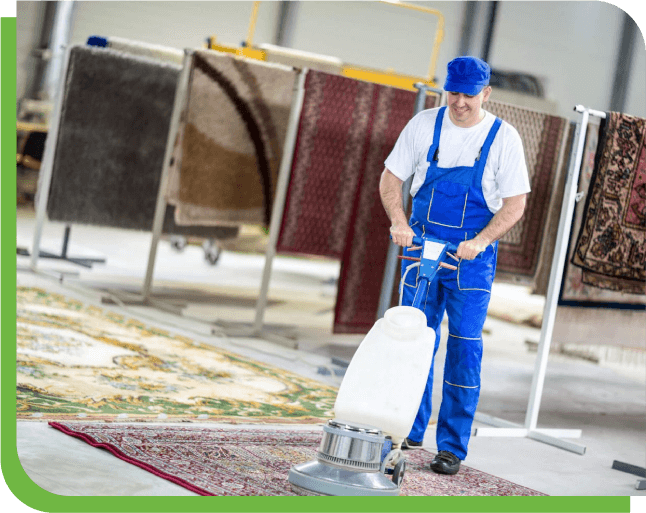Get in touch
Fill this up to proceed

We are committed to providing a world-class carpet, rug, upholstery, drapery or mattress cleaning services that will open your door to a happier and healthier green indoor environment.

Have you ever walked into a messy room and felt instantly overwhelmed? You’re not alone. There’s a powerful link between clutter and mental health that many people don’t even realize. That pile of laundry, those unfiled papers, and random items crowding countertops can quietly wear down your well-being. This isn’t just about aesthetics—it’s about how your brain responds to chaos in your environment. In fact, clutter can affect your thoughts, emotions, and even physical health more than you might expect.
Whether you live in a small apartment or a large home in Calabasas, the connection between clutter and mental health remains the same. Let’s explore seven eye-opening ways clutter and mental health are connected—and what you can do to restore peace in your space and mind.
When your surroundings are cluttered, your brain has to work harder just to process what’s in front of you. Visual overload from too much stuff can reduce your ability to concentrate and solve problems. Instead of focusing on tasks, your attention is constantly pulled in different directions. This mental drain creates stress and reduces productivity, especially if you work or study at home. Think of clutter as noise—but for your eyes.
Your attention can become scattered, you may feel mentally foggy or distracted, and productivity can decline because your brain is overstimulated. This ongoing strain can make even simple decisions feel exhausting. Over time, the toll adds up—and that’s why clutter and mental health go hand-in-hand. Clearing just one area of your home in Calabasas can sharpen your focus and help your mind breathe.
Have you ever noticed how mess can increase your stress without you realizing it? When you see clutter, your brain interprets it as something unfinished. It’s a quiet reminder that there’s more to do, which triggers a stress response. This kind of pressure isn’t just emotional—it has physical effects. Elevated cortisol levels, your body’s main stress hormone, can lead to anxiety, fatigue, or trouble sleeping.
Imagine walking into a messy bedroom at night. Instead of feeling calm and ready for rest, your mind may go into to-do list mode. Thoughts about laundry, disorganized drawers, and unvacuumed floors stir mental tension, making it harder to relax. If this is your daily experience, it’s a clear sign that clutter and mental health are linked. A tidier space can be your first step toward reducing stress and boosting calmness. For many homeowners, working with trusted deep cleaning professionals can help restore balance quickly.
Clutter doesn’t just drain your energy—it can also heighten feelings of guilt, shame, or embarrassment. Many people feel like they’ve failed if their home is messy. That emotional burden builds up, especially when visitors are expected or when comparing yourself to images of spotless homes online. This internalized judgment can damage self-esteem and confidence.
Guilt makes you think you should have cleaned already. Shame can cause you to worry about what others think of you. Avoidance may keep you from inviting people over at all. These thoughts feed a cycle of negative self-talk, making it even harder to take action. The more clutter you have, the worse you might feel—and the worse you feel, the more clutter piles up. Understanding this emotional spiral is essential to addressing how clutter and mental health influence one another.
Living with clutter can make you feel stuck in more ways than one. Not only does it slow down physical movement through your space, but it also weighs on your decision-making. When everything feels disorganized, it becomes hard to know where to start. This often leads to procrastination—not because you’re lazy, but because your brain feels overwhelmed by choice.
You may walk into a room with good intentions, see too much mess, and feel unsure of what to tackle first. This cycle keeps people from making progress in their homes and lives. If you’ve ever delayed an important task simply because the environment felt too messy to function, then you’ve experienced how clutter and mental health are tightly intertwined.

Cluttered homes are often linked to poor sleep. That’s because your bedroom should be a sanctuary—a place where your body and mind wind down. But when your sleeping area is full of disorder, it can trigger subconscious stress. Instead of resting, your brain stays alert, processing the chaos around you.
Even if you don’t consciously notice it, the environment is communicating to your mind that there’s work to do here. That quiet tension makes it hard to relax deeply. To truly improve your sleep, don’t just focus on your mattress—look at your surroundings. Tidying up even a little can reduce the negative effects of clutter and mental health struggles tied to restlessness.
A messy home doesn’t just affect your mind—it also impacts your social life. When people feel embarrassed about their clutter, they tend to stop inviting friends over. Over time, this can lead to isolation and loneliness. Human connection is essential for mental health, but clutter can quietly erode that by making people withdraw.
Instead of excitement, the thought of hosting can bring dread. You might worry about judgment, feel the need to clean first but lack time, or decide it’s easier not to invite anyone. These doubts create a barrier between you and your social world. Over time, the mess begins to dictate your lifestyle choices. This connection between clutter and mental health can be subtle but powerful. By clearing social spaces, you can rebuild confidence and open your home again. Residents in Calabasas often benefit from Carpet Cleaning Calabasas to refresh their spaces before gatherings.
The mental load of clutter doesn’t end when you leave the room. Many people report that just thinking about their mess weighs them down. This background stress, often called mental clutter, can create anxiety even during unrelated tasks. Whether you’re at work, out shopping, or spending time with loved ones, clutter can creep into your thoughts.
Your environment shapes your mental state. A clean, tidy room brings a sense of control. A cluttered one brings noise. When everything feels scattered, your thoughts often do too, affecting memory, decision-making, and emotional stability. Tackling the source—your physical clutter—eases the strain on your inner world. The relationship between clutter and mental health is like a two-way street: fix one, and the other often improves too.
Start with one small space. Choose a corner, a drawer, or a countertop and clear it completely. When you see immediate results, your brain gets a dopamine boost that encourages further action.
Pick one area, sort items into keep, donate, or trash, wipe down the space, and return only what belongs. Keep your tools nearby—a trash bag, donation box, and a timer set for 15 minutes. Repeating this process daily or weekly chips away at the chaos and creates calm. When the task feels too big, professionals can help transform your home from overwhelming to welcoming.
Clutter may feel like a physical problem, but it’s often rooted in emotional patterns. Some people hang onto objects due to fear, grief, or memories. Others associate clutter with control—keeping things just in case brings a false sense of preparedness. Understanding the emotional side of clutter and mental health is crucial for creating lasting change.
Anxiety may make letting go feel unsafe. Guilt may arise from discarding gifts or expensive items. Fear may whisper what if I need this later. Recognizing these feelings allows you to challenge them. Ask yourself if the item serves you today. If not, releasing it can be an act of self-care. Decluttering becomes more than a chore—it becomes healing.
Incorporating simple routines can make a huge difference. A five-minute nightly tidy-up or a one-in, one-out rule for new items can prevent mess from becoming overwhelming again. Creating boundaries keeps your space clean and your mind clear.
Regular decluttering, mindful purchasing, using storage containers, and keeping surfaces clear are all effective. Sometimes, a fresh start is best. Expert-level cleaning services can help maintain your progress—especially in Calabasas, where reliable home care can make a world of difference.
Clutter can increase stress, reduce focus, and create feelings of guilt or overwhelm. A messy environment constantly signals your brain that there’s unfinished business, making it harder to relax.
Visual clutter overstimulates the brain, pulling your attention in different directions. This makes it harder to concentrate and can cause anxiety over time.
Start with one small area like a drawer or a single shelf and use a timer for 15 minutes. Quick wins create motivation and reduce that overwhelmed feeling.
Yes, clutter in the bedroom can signal your brain to stay alert, leading to restless nights. A clean, tidy sleep environment helps your mind wind down.
You can ask for help from professional cleaning services to jumpstart the process. It’s a smart way to refresh your space and ease mental stress quickly.

We are committed to providing a world-class carpet, rug, upholstery, drapery or mattress cleaning services that will open your door to a happier and healthier green indoor environment.
We are committed to providing a world-class carpet, rug, upholstery, drapery or mattress cleaning services that will open your door to a happier and healthier green indoor environment.